Zinedine Zidane, widely regarded as one of the greatest footballers of all time, mesmerized the world with his exceptional talent, grace, and unrivaled skill on the field. This article delves into the remarkable career of Zidane, highlighting his achievements, playing style, and enduring legacy as a true footballing maestro.
Born on June 23, 1972, in Marseille, France, Zinedine Yazid Zidane, popularly known as Zizou, displayed his love for football from a young age. His rise to stardom began with his time at AS Cannes and Girondins de Bordeaux, where his exceptional playmaking abilities and technical finesse caught the attention of football scouts. Zidane’s breakthrough came when he joined Juventus in 1996, solidifying his reputation as one of the most talented midfielders in the game.
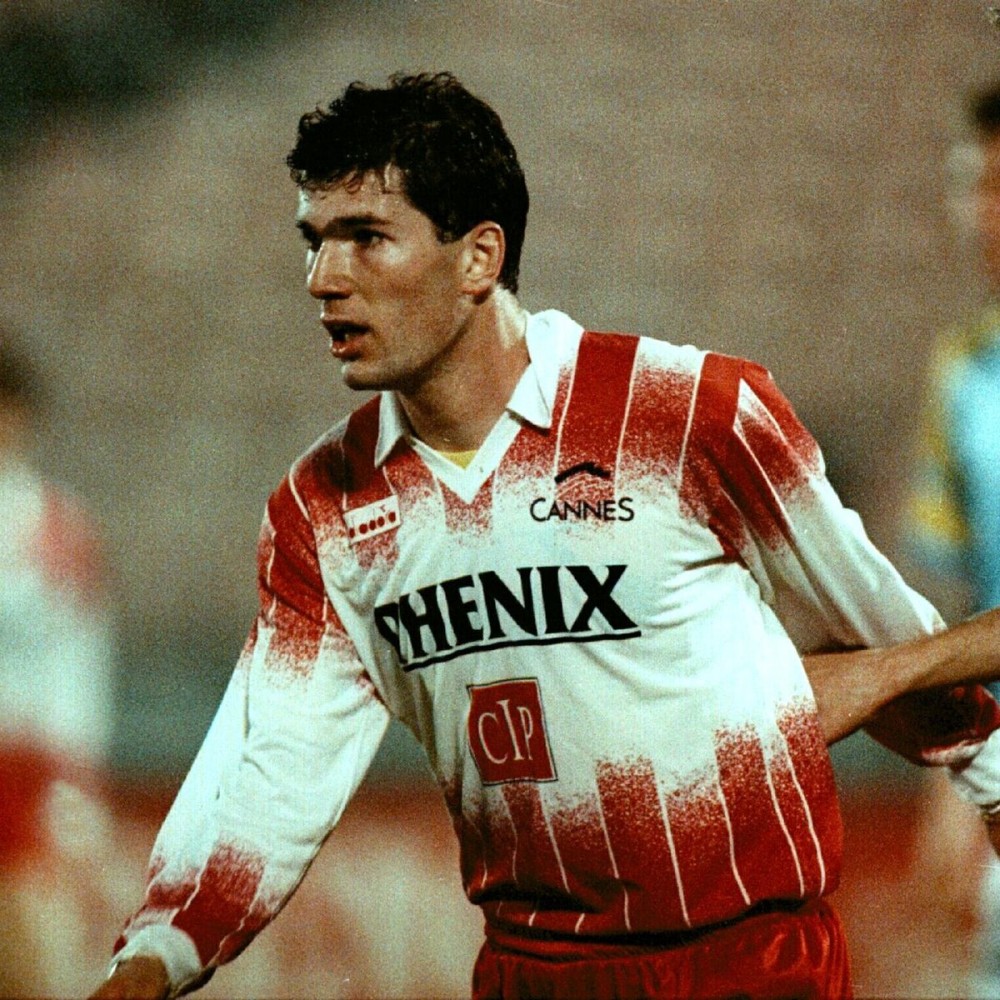
Zidane’s playing style can be described as a perfect blend of elegance, vision, and skill. His graceful ball control, precise passing, and exceptional dribbling ability allowed him to dictate the tempo of matches and create scoring opportunities for his teammates. Zidane possessed a unique ability to make the most complex maneuvers look effortless, leaving fans and opponents alike in awe of his mastery over the game.
Zidane’s career was studded with numerous iconic moments that will forever be etched in football history. His unforgettable performance in the 1998 FIFA World Cup, where he scored two goals in the final, led France to their first-ever World Cup triumph. Zidane’s extraordinary volley in the 2002 UEFA Champions League final for Real Madrid against Bayer Leverkusen is widely considered one of the greatest goals ever scored. He also played a pivotal role in leading Real Madrid to three consecutive Champions League titles from 2016 to 2018 as the team’s manager.
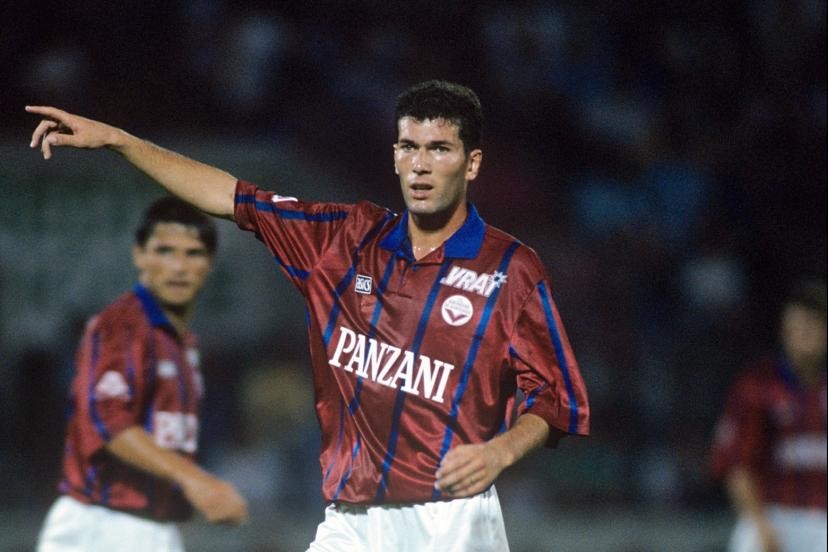
After a series of stand-out performances for both Bordeaux and France, Zidane had offers to join Europe’s top clubs in the spring of 1996, deciding on a move to UEFA Champions League winners Juventus during the close season. Zidane’s impact in Italy was immediate, winning the 1996–97 Serie A title and the 1996 Intercontinental Cup. He was named Serie A Foreign Footballer of the Year in his first season. Zidane’s growing status in the sport saw him chosen in a European XI to face a World XI – featuring a forward line of Ronaldo and Gabriel Batistuta – in December 1997.
As the playmaker at Juve, Zidane played just behind forward Alessandro Del Piero, with Del Piero recalling, “Zidane had an extraordinary talent, which contributed to his sole interest in helping the team. He was not a selfish player. He had a unique ability to be great and to be a team player. I was lucky to play with him.”He lost in the 1997 UEFA Champions League Final 3–1 to Borussia Dortmund when he was unable to make an impression against the close marking of Paul Lambert.

The following season, Zidane scored seven goals in 32 matches in the league to help Juventus win the 1997–98 Serie A and thus retain the Scudetto. In Europe, Juventus made their third consecutive UEFA Champions League Final appearance but lost the game 1–0 to Real Madrid. In 1998, Zidane was named FIFA World Player of the Year and won the Ballon d’Or. Juventus finished second in the 2000–01 Serie A but were eliminated in the group stage of the Champions League after Zidane was banned for head-butting Hamburger SV player Jochen Kientz. In 2001, Zidane was named Serie A Foreign Footballer of the Year for the second time.

In 2001, Zidane joined Real Madrid for a world record fee of 150 billion Italian lire,(about €77.5 million by fixed exchange rate; a reported 12.8 billion pesetas) in installments, and signed a four-year contract. The latest addition to the Galácticos era of global stars signed by Real Madrid every year, in his first season at the club Zidane scored a famous match-winning goal, a volley hit with his weaker left foot from the edge of the 18-yard box, in Madrid’s 2–1 win over Bayer Leverkusen in the 2002 UEFA Champions League Final. The goal has been cited as one of the greatest in Champions League history. The magnitude of the strike saw Zidane produce one of his most emotional goal celebrations as he ran towards the touchline with mouth wide open, screaming in delight.
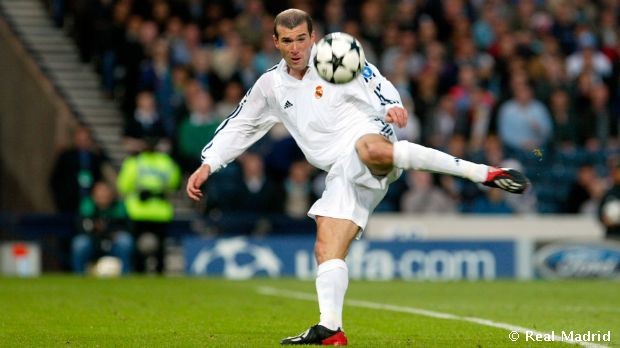
Zinedine Zidane, 18 yards out, watching and waiting, adjusts his body and, in one, smooth movement, pirouettes and catches it full on the volley with his left foot. It flies past Hans-Jorg Butt. It was the moment of Zidane’s apotheosis, more so than the 1998 World Cup final, because of the moment’s grace and beauty, because of his control of everything around him. He was Bruce Lee in slow motion while kung-fu chaos reigned around.
— Rory Smith in The Telegraph, Top 20 sporting moments of the decade: Zinedine Zidane’s Champions League final win.
The next season, Zidane helped Real Madrid to win the 2002–03 La Liga, starring alongside Luís Figo in midfield and was named the FIFA World Player of the Year for the third time. In 2004, fans voted him as the best European footballer of the previous 50 years in UEFA’s fiftieth-anniversary Golden Jubilee Poll.
While Zidane’s final season of club football ended without a trophy, he enjoyed success on a personal note by scoring his first hat-trick, against Sevilla, in a 4–2 win in January 2006. He ended the season for Real Madrid as their second-highest goalscorer and assists provider behind teammates Ronaldo and David Beckham respectively, with nine goals and ten assists in 28 games. On 7 May 2006, Zidane, who had announced his plans to retire after the 2006 World Cup, played his farewell match and scored in a 3–3 draw with Villarreal. The squad wore commemorative shirts with ZIDANE 2001–2006 below the club logo. The 80,000 fans inside the Santiago Bernabéu held up a banner reading, “Thanks for the magic.”
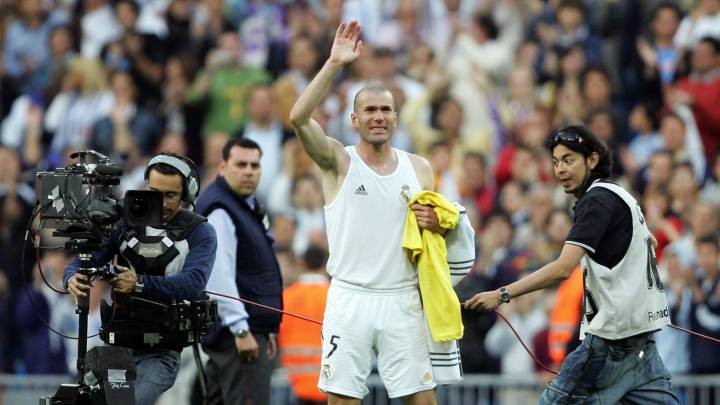
In 2012, Zidane featured for Madrid in an All Stars Match against Manchester United which resulted in a 3–2 win for Real. In April 2013, he was named by Marca as a member of the “Best foreign eleven in Real Madrid’s history.
1998 World cup
The 1998 FIFA World Cup was the first World Cup that Zidane participated in; the tournament was held in his home country, France. The French team won all three games in the group stage, with Zidane setting up Christophe Dugarry’s goal in the opening match against South Africa from a corner, and contributing to Thierry Henry’s opening goal in the second match against Saudi Arabia; however, Zidane was sent off in the latter match for a stamp on Fuad Anwar, becoming the first French player to receive a red card in a World Cup Finals match. Without their playmaker, France proceeded to win 1–0 in the round of sixteen games against Paraguay and, on his return to the side, defeated Italy 4–3 on penalties after a goalless draw in the quarter-finals, with Zidane netting the first spot kick in the shoot-out. France then defeated Croatia 2–1 in the semi-final. Although Zidane had played a role in the team’s accomplishments, he had yet to score a goal at the World Cup.
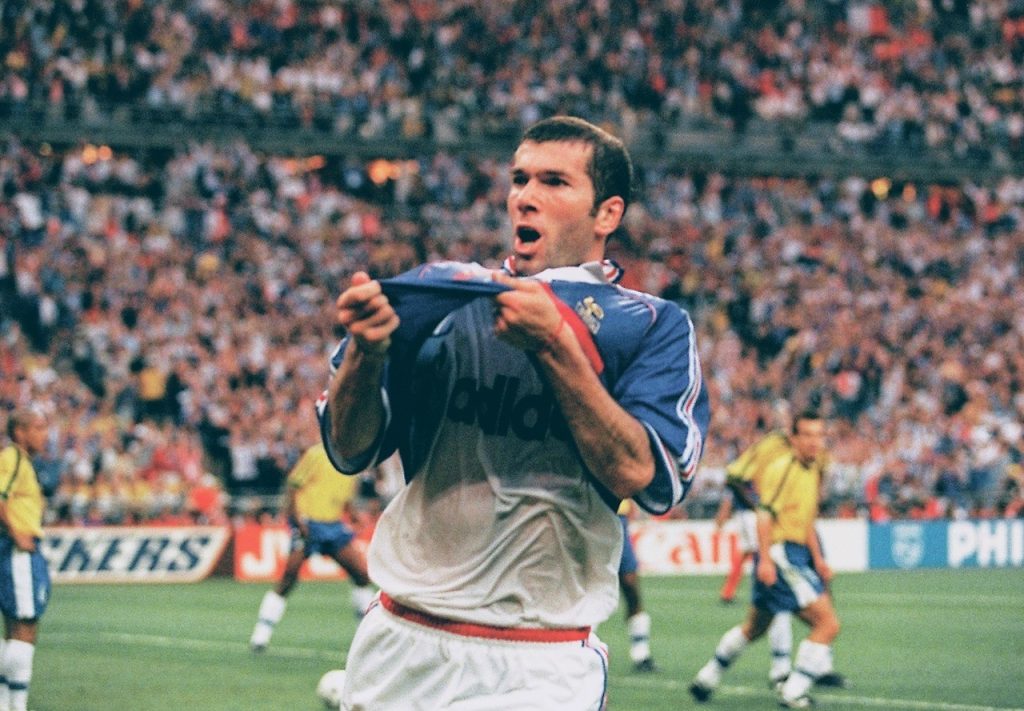
Zidane and France went on to play against defending champions and favorites Brazil at the Stade de France in the 1998 FIFA World Cup Final. France dominated Brazil from the kick-off, with Zidane scoring two similar goals, both headers from corner kicks taken by Emmanuel Petit and Youri Djorkaeff. Courtesy of Zidane’s two goals, France went into the half-time break 2–0 up with one hand on the World Cup trophy. Petit added a third goal deep in stoppage time to seal the 3–0 win and France’s first World Cup. Named man of the match, Zidane became an instant national hero and would receive the Legion of Honour later that year. More than one million people lined the Champs-Élysées in Paris, with celebrations centered around the Arc de Triomphe.
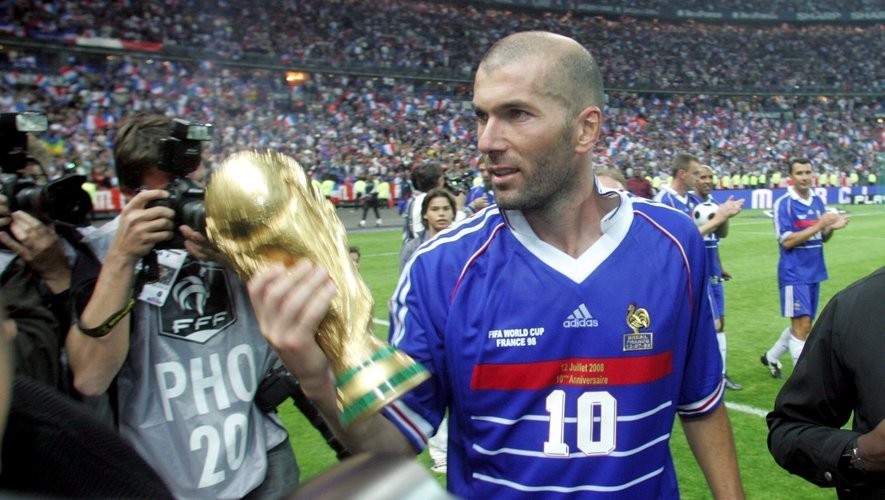
Euro 2000
Two years later France won Euro 2000, becoming the first team to hold both the World Cup and the European Championship since West Germany in 1974. Zidane finished with two goals, a bending free kick against Spain in the quarter-final and the golden goal in the semi-final against Portugal with a penalty.UEFA named Zidane Player of the Tournament.
Zidane himself believes he was at his peak during the tournament, while the UEFA website states, “In Belgium and the Netherlands, Zidane dominated a major championship in a way no individual had managed since Diego Maradona in 1986. From the opening game against Denmark to the final against Italy, ‘Zizou’ shone brightly, casting a spell on his opponents with clever flicks, mesmerizing stepovers, slaloming runs, and masterful vision.
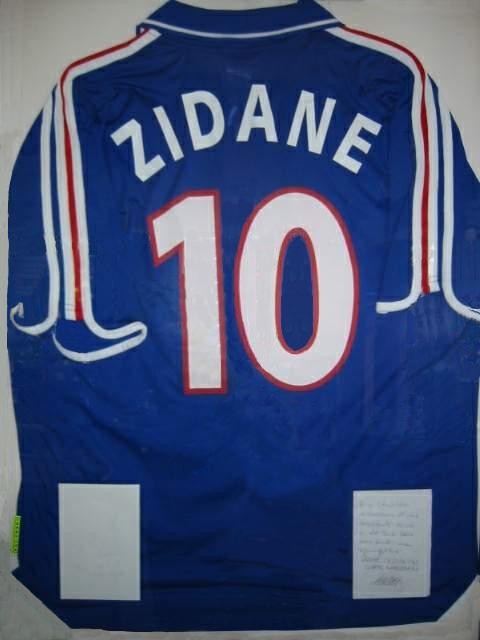
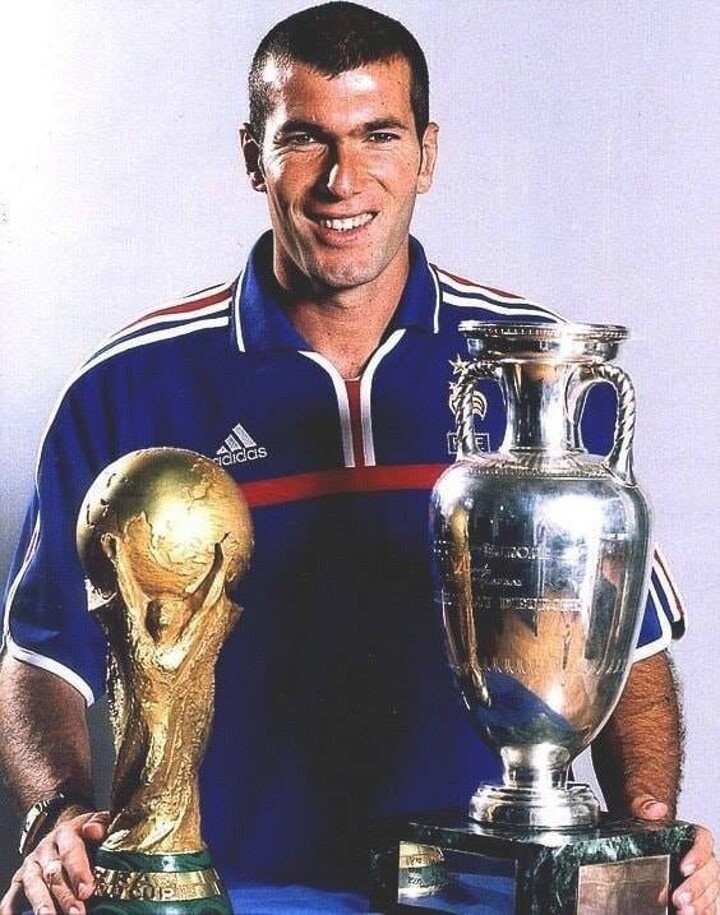
2006 World Cup
Having already announced he was to retire after the expiration of his Real Madrid contract at the end of the 2005–06 season, the world of football already knew Zidane’s second World Cup final was to be the last match of his career. Seven minutes into the 2006 World Cup final in Berlin, Zidane put France ahead with a Panenka-style penalty kick which struck the crossbar and bounced just over the goal line to become only the fourth player in World Cup history to score in two different finals, along with Pelé, Paul Breitner, and Vavá, in addition to being tied for first place with Vavá, Pelé and Geoff Hurst with three World Cup final goals apiece. He almost scored a second goal during the first period of extra time but his header was saved by Italy’s goalkeeper Gianluigi Buffon. Zidane was then sent off in the 110th minute of the game after headbutting Marco Materazzi in the chest, so he did not participate in the penalty shootout which Italy won 5–3. This marked the 14th overall expulsion of Zidane’s career and joined him with Cameroon’s Rigobert Song as the only players ever to be sent off during two separate World Cup tournaments. He also became the fourth player red-carded in a World Cup final, in addition to being the first sent off in extra time. Zidane’s actions made headlines all over the world, while in France Le Figaro called his head-butt “odious”, and the front page of L’Équipe asked, “What should we tell our children, for whom you have become an example forever? … How could that happen to a man like you?”Zidane had received plaudits for his performances during the tournament, with Pep Guardiola writing he exerts so much influence on the team that “France is never disorganized”.The day after the final, Zidane was awarded the Golden Ball as the player of the tournament.
Upon his return to France, the Place de la Concorde in Paris was filled with thousands of fans waving flags and rhythmically chanting “Zizou! Zizou!”, and tributes were led by the French president Jacques Chirac. Chirac’s words reflected the feeling of the French public, with polls done in the immediate wake of the incident showing support for Zidane: 61% of French people said they had already forgiven him for his actions while 52% said they understood them.
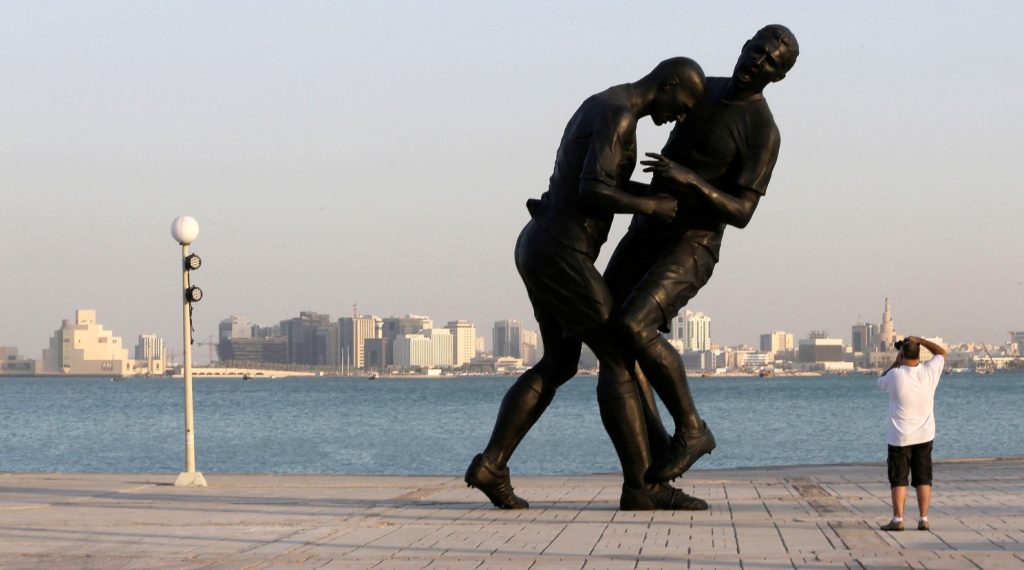

Zidane’s impact on the game extended beyond his playing days. Following his retirement, he transitioned seamlessly into coaching, where he continued to display his tactical acumen and leadership skills. Zidane’s influence on future generations of players is immeasurable, with many citing him as an inspiration for their own playing style and approach to the game. He also played a pivotal role in leading Real Madrid to three consecutive Champions League titles from 2016 to 2018 as the team’s manager.
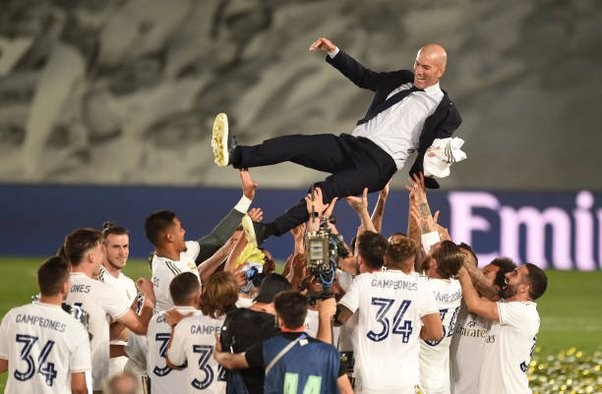
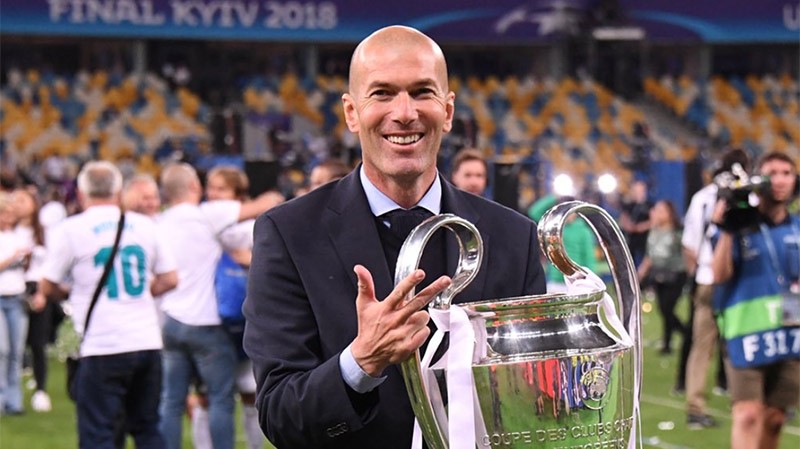
Zidane’s magnetic personality and humble demeanor further endeared him to fans worldwide. He conducted himself with grace and humility both on and off the field, earning respect for his sportsmanship and dedication to the sport. Zidane’s contributions to charitable causes and his commitment to using his platform for positive change have further solidified his status as a role model and ambassador of the game.
Zinedine Zidane’s remarkable career and unparalleled skill have left an indelible mark on the world of football. His elegance, vision, and technical brilliance continue to inspire players and fans alike. Zidane’s legacy as a true maestro of the game, combined with his personal charisma and integrity, ensures his place among the all-time greats. His influence on the sport will be cherished for generations to come, cementing his status as an icon of footballing excellence.
Honors
Player
Bordeaux:
UEFA Intertoto Cup: 1995
UEFA Cup runner-up: 1995–96
Juventus:
Serie A: 1996–97, 1997–98
Supercoppa Italiana: 1997
UEFA Super Cup: 1996
Intercontinental Cup: 1996
UEFA Intertoto Cup: 1999
UEFA Champions League runner-up: 1996–97, 1997–98
Real Madrid:
La Liga: 2002–03
Supercopa de España: 2001, 2003
UEFA Champions League: 2001–02
UEFA Super Cup: 2002
Intercontinental Cup: 2002
France:
FIFA World Cup: 1998; runner-up: 2006
UEFA European Championship: 2000
Individual:
French Division 1 Young Player of the Year: 1993–94
French Division 1 Player of the Year: 1995–96
Serie A Foreign Footballer of the Year: 1996–97, 2000–01
Ballon d’Or: Bronze award 1997
FIFA World Player of the Year: Bronze Award 1997, 2002
Onze d’Argent: 1997, 2002, 2003
FIFA XI: 1997, 1998, 2000, 2002
ESM Team of the Year: 1997–98, 2001–02, 2002–03, 2003–04
UEFA Club Midfielder of the Year: 1998
L’Équipe International Champion of Champions: 1998
L’Équipe France Champion of Champions: 1998
FIFA World Cup All-Star Team: 1998, 2006
World Soccer Awards Player of the Year: 1998
France Football French Player of the Year: 1998, 2002
Onze d’Or: 1998, 2000, 2001
Ballon d’Or: 1998
FIFA World Player of the Year: 1998, 2000, 2003
El País European Player of the Year: 1998, 2001, 2002, 2003
Onze de Bronze: 1999
World Soccer’s Selection of the 100 Greatest Footballers of the 20th Century: 1999
2nd French Player of the Century (France Football): 2000
Ballon d’Or: Silver Award 2000
UEFA European Championship Player of the Tournament: 2000
UEFA European Championship Team of the Tournament: 2000, 2004
Serie A top assist provider: 2000–01
Serie A Footballer of the Year: 2000–01
UEFA Team of the Year: 2001, 2002, 2003
Don Balón Award: 2001–02
La Liga Best Foreign Player: 2001–02
UEFA Club Footballer of the Year: 2002
FIFA World Cup Dream Team: 2002
FIFA 100: 2004
UEFA Best European Player of the Past 50 Years: 2004
FIFA FIFPro World XI: 2005, 2006
IFFHS World’s Best Playmaker: 2006
FIFA World Cup Golden Ball: 2006
FIFA World Player of the Year: Silver Award 2006
UNFP Honorary Award: 2007
AFS Top-100 Players of All Time #5: 2007
Marca Leyenda Award: 2008
Golden Foot Legends Award: 2008
ESPN Team of the Decade: 2009
ESPN Player of the Decade: 2009
Fox Sports Player of the Decade: 2009
Sports Illustrated Team of the Decade: 2009
Sports Illustrated Player of the Decade: 2009
Don Balón Team of the Decade: 2010
Don Balón Player of the Decade: 2010
Laureus Lifetime Achievement Award: 2011
UEFA team of teams: 2011
UEFA Champions League Best Player of the Past 20 Years: 2011
Équipe type spéciale 20 ans des trophées UNFP: 2011
Real Madrid Greatest XI of All Time: 2012
World Soccer Greatest XI of All Time: 2013
Real Madrid Hall of Fame: 2014
UEFA Ultimate Team of the Year (substitute): 2015
IFFHS Legends: 2016
UEFA European Championship All-Time XI: 2016
FourFourTwo’s Selection of the 100 Greatest Footballers of All Time #8: 2017
Juventus Greatest XI of All Time: 2017
L’Équipe Best French Player of All Time: 2018
Ballon d’Or Dream Team (Silver): 2020
IFFHS All-time Men’s B Dream Team: 2021
IFFHS All-time Europe Men’s Dream Team: 2021
FourFourTwo’s 100 best football players of all time #5: 2022
Italian Football Hall of Fame: 2022
Manager
Real Madrid:
La Liga: 2016–17,2019–20
Supercopa de España: 2017, 2019–20
UEFA Champions League: 2015–16, 2016–17, 2017–18
UEFA Super Cup: 2016, 2017
FIFA Club World Cup: 2016, 2017
Individual:
La Liga Manager of the Month: April 2016, May 2017
UEFA La Liga Team Revelation of the Year: 2015–16
UEFA Champions League Breakthrough XI: 2015–16
IFFHS World’s Best Club Coach – Runner-up: 2016
The Best FIFA Football Coach: 2017; Runner-up: 2016,2018
France Football French Manager of the Year: 2016,2017
Le Buteur Coach of the Year: 2016
UEFA La Liga Team of the Season: 2016–17,2019–20
France Football UEFA Champions League Team of the Season: 2016–17
Onze d’Or Coach of the Year: 2016–17,2017–18,2020–21
ESPN Manager of the Year: 2017
IFFHS World’s Best Club Coach: 2017,2018
IFFHS Men’s World Team: 2017
RMC French Manager of the Year: 2017
Globe Soccer Awards Best Coach of the Year: 2017
World Soccer Magazine World Manager of the Year: 2017; Runner-up: 2018
France Football 22nd Greatest Manager of All Time: 2019
Sports Illustrated 34th Greatest Manager of All Time: 2019
Miguel Muñoz Trophy: 2019–20
L’Equipe’s Best Club Coach: 2020
FourFourTwo’s 36th Greatest Manager of All Time: 2020
Globe Soccer Awards Coach of the Century 2001–2020 (Runners-up)
IFFHS’s 38th All-Time World’s Best Coach: 2021
Orders:
Knight of the Legion of Honour: 1998
National Order of Merit: 2006
Officer of the Legion of Honour: 2008
Records:
As a player:
The most expensive footballer in history: 2001–2009
Most FIFA World Cup Final matches scored in: 2 matches (shared with Pelé, Vavá, Paul Breitner, and Kylian Mbappé)
Most red cards received in FIFA World Cup matches: 2 (shared with Rigobert Song)
Midfielder with the most appearances in the ESM Team of the Season
One of the two players in history to be named Player of the Year in 3 of the Top 5 Leagues: Division 1 Player of the Year (1996), Serie A Footballer of the Year (2001), Don Balón Award (2002)
Only player in history to win the World Cup and the European Championship while being named best player of both competitions
Most Onze d’Or awards: 7 in total (shared with Cristiano Ronaldo)
Most FIFA World Player of the Year awards: 6 in total
As a manager:
The best winning streak in the history of La Liga: 16 games (shared with Pep Guardiola)
Most consecutive away wins in the history of La Liga: 13 games
Manager with the lowest number of defeats after 100 games (in Spanish football): 8 losses
Manager with the most trophies after 100 games (in Spanish football): 7 titles
Longest unbeaten run in Real Madrid history: 40 games
Longest unbeaten run in Spanish football: 40 games
First French manager, except the French-Argentinian Helenio Herrera, to win UEFA Champions League: 2015–16
Longest scoring run (all major competitions) in European football: 73 games
Only manager in history to win two consecutive UEFA Champions League trophies in its modern format: 2015–16, 2016–17
Only manager to win three consecutive European Cup/UEFA Champions League finals: 2015–16, 2016–17, 2017–18
Only manager in Real Madrid history to win four trophies in one season
Only manager in Real Madrid history to win the UEFA Super Cup twice
First manager to win two consecutive UEFA Super Cup titles since Arrigo Sacchi
Quickest manager in the history of the Top 5 Leagues to win 7 titles with a single club: 19 months
Quickest manager in the history of the Top 5 Leagues to win 8 titles with a single club: 23 months
Quickest manager in history to be named FIFA Football Coach of the Year: 653 days
Most The Best FIFA Football Coach awards: 3 in total
Only person in history to win the Onze d’Or award as a player and as a manager
Only person in history to win FIFA’s Player of the Year award and Coach of the Year award
Only person in history to win the IFFHS award as the best playmaker and as a manager
Only person in history to win the FIFA Club World Cup trophy successively as a manager
Only manager in Real Madrid history to win five trophies in a calendar year
Only person in history to win the FIFA Club World Cup/Intercontinental Cup twice as a player and twice as a manager
Only person in history to be named French Player of the Year twice and French Manager of the Year twice
Highest score for a manager winning the IFFHS World’s Best Club Coach award: 326 points
First manager to reach three consecutive UEFA Champions League finals since Marcello Lippi: 2015–16, 2016–17, 2017–18.


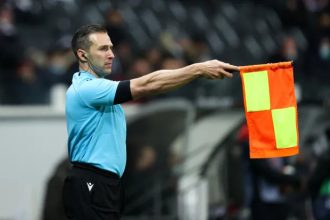
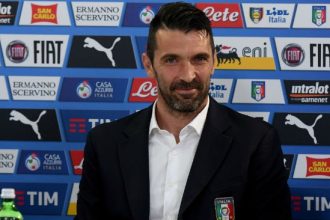
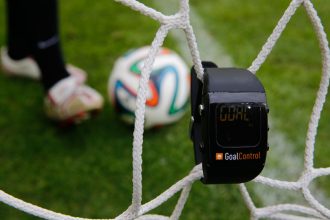
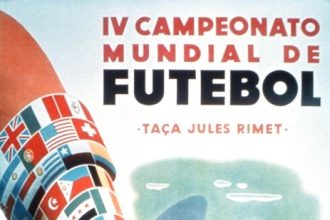
I do consider all of the concepts you have introduced for your post.
They’re really convincing and can definitely work. Nonetheless, the posts are very short for starters.
May you please prollong them a little from next time? Thank you for the post.
Stop byy my web page: Reed
Hello and thank you for visiting our site and leaving a comment!
We’re glad you found the content interesting. We hope you will share more of your experiences and thoughts with us in the future. If you have any questions or suggestions, please feel free to let us know.
Wishing you success and good health!